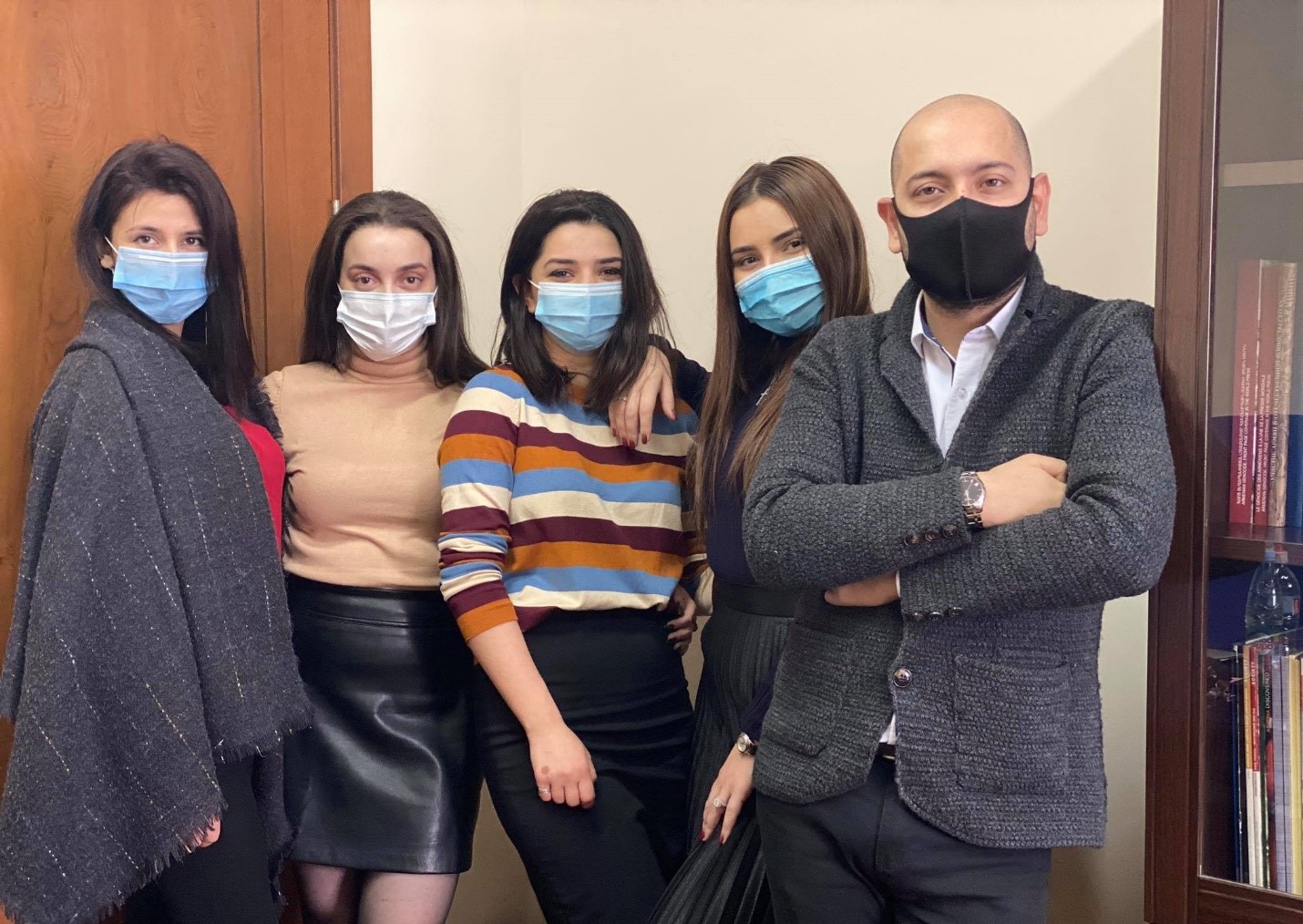Last fall, Armenia’s government faced twin crises. In addition to managing COVID-19, Armenia also found itself in a war with Azerbaijan over the disputed territory of Nagorno-Karabakh. With both these calamities came a surge in disinformation that jeopardized the country’s democratic advancements and required government action. Already a key challenge for Armenia’s government, combatting disinformation soon became the country’s top priority. But with support from International Republican Institute (IRI) communications fellows like Julieta Tavakalyan, Armenia’s government is today one step closer to meeting that challenge.
Over the past several years, social media has become the primary tool for disseminating information in Armenia – both true and false. While social networks offer critical opportunities for awareness raising, they also are fertile ground for the creation and growth of misinformation. With Armenians unsure of who and what to trust online, it is essential that state institutions become the first source of accurate information, while also refuting disinformation online.
With the onset of COVID-19 and the conflict in Nagorno-Karabakh, disinformation has gripped Armenian social media like never before, and the consequences have been severe. Distrust in policymakers is high, and the government is forced to devote its energy to responding to falsehoods instead of spreading critical information. Today, it has never been more essential that Armenia’s public officials use social media to spread accurate and clear information to keep citizens safe.
Responding to this need, IRI adjusted its programming in Armenia to support government agencies and the National Assembly in countering the rise in disinformation. Through its Strengthening Political Accountability through Reform Communication (SPARK) program, IRI provided the communications teams of government institutions with fellows meant to boost their public outreach. The fellows participating in this initiative are specialists in communications, with most employed by well-known news agencies and media outlets in Armenia. All of them have shown a readiness to bring their fresh outlook and experience in the private sector to support the public arena.
With the help of communications fellows, Armenia’s government doubled down on implementing new communications strategies – particularly on social media – that undermined the credibility of false information surrounding the pandemic and the conflict with Azerbaijan. Julieta Tavakalyan, the fellow assigned to Armenia’s Ministry of Foreign Affairs, is an example of the critical contributions her cohort made to Armenia in a time of need.
With a degree and background in external affairs, Julieta supported the ministry’s communications team in managing its social media accounts; liaising with the National Assembly and journalists; and putting together press releases and media advisories ahead of important meetings. Ultimately, Julieta’s input helped the Ministry proactively, professionally and accurately release information on its policies to address the twin crises in Armenia, leaving no room for misinterpretation or falsehoods.
Motivated by the power of creativity, Julieta believes that, “if you have an idea in which you really believe, then the team will also believe in you.” Because of her commitment to keeping Armenians informed and engaged, Julieta was asked to connect with the communication specialists of other ministries as well. Collaborating with the Ministry of Education, Science, Culture and Sports (MoESCS), Julieta trained the communications team in leveraging Twitter to elevate credible information on social media. Her partnership with MoESCS was so well-received that the ministry ultimately reached out to IRI for their own SPARK fellow.
Julieta and other communications fellows have been pivotal in providing Armenians with trusted information on government reforms during hard times. More importantly, the fellows have also built the communications capacity of existing government staff – contributing to a future where disinformation is overshadowed by reputable information fostering unity, instead of division.
At IRI, we believe a high-functioning democracy depends on well-educated citizens. Providing Armenians with accurate information about their government’s activities is a means to ensure transparency, accountability and the legitimacy of democratic institutions. While social media is a key platform to enhance the quality of government communications today, it is also conducive to the rapid spread of disinformation. Using social media platforms strategically and with an eye towards stifling unreliable information is essential – and IRI is proud to support these efforts both in Armenia and across the globe.
Top